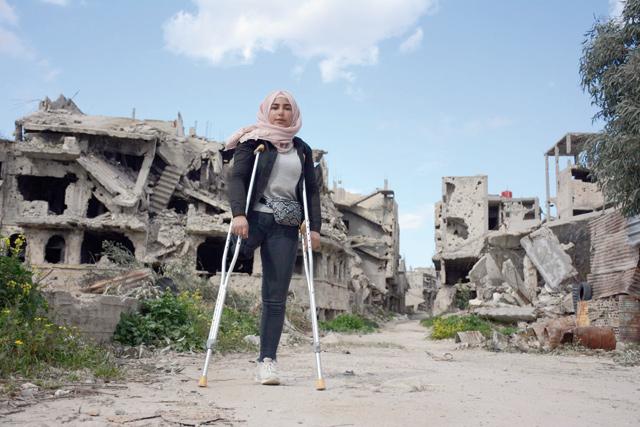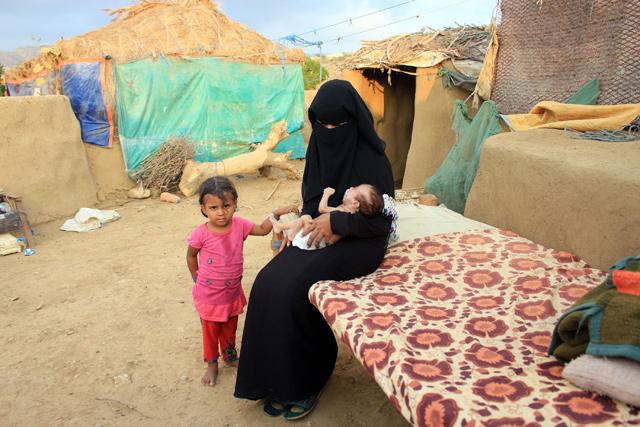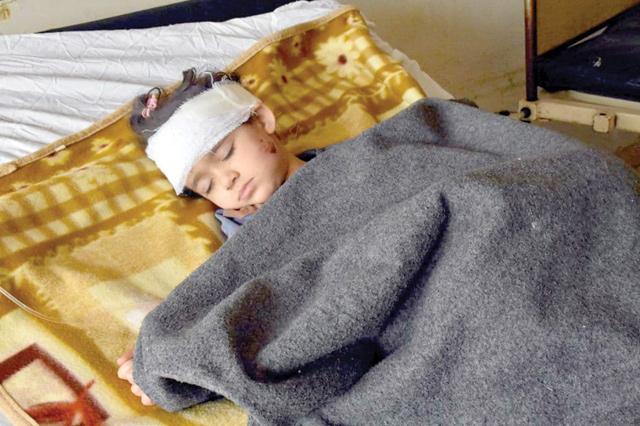You are here
UNICEF calls for $1.4b to ensure continued assistance to Syrian children in region
By Sarah Abu Zaid - Mar 15,2021 - Last updated at Mar 15,2021

According to UNICEF, the Syrian crisis still has a huge impact on children inside and outside of Syria (Photo courtesy of UNICEF)
AMMAN — UNICEF has called for $1.4 billion in assistance to be able to continue providing assistance to Syrian children and families in Syria and neighbouring countries in 2021.
Juliette Touma, UNICEF Regional Chief of Communications, Middle East and North Africa, during a virtual press briefing, said that after 10 years of conflict between Syrians, the Syrian crisis still has a huge impact on children inside and outside of Syria.
UNICEF has helped in education, health, nutrition and water sanitisation, Touma said, highlighting Jordan’s role in hosting a large number of Syrian refugees
She also noted that UNICEF continues to work in Aleppo, north of Syria, to help with education of children and provide psychological support.
Ted Chaiban, UNICEF Regional Director for the Middle East and North Africa, during the press briefing hailed Jordan for being the first country in the world to start vaccinating refugees against COVID-19.
He noted that there are 6.1 million children in Syria in need of assistance.
According to Chaiban, the price of the average food basket (average weekly consumption of food per family) has increased by more than 230 per cent.
“According to estimates, more than half a million children at the age of 5 have suffered through stunting as a result of chronic malnutrition,” he said.
One in three schools inside Syria cannot be used because they are damaged, destroyed, sheltering displaced families or used for military purposes, Chaiban noted, adding that some 1,300 educational and medical facilities have been attacked.
According to the latest verified data, more than 12,000 children were killed or injured in the period 2011-2020, he added.
He highlighted that more than 5,700 children, some as young as seven years old, were recruited in the fighting, nearly half of whom served in combat roles on the frontlines.
“This has affected the mental health state of children on both the short and the long terms with one in four children displaying symptoms of psycho-social stress and it is double what we had last year,” he said.
Nevertheless, Chiban voiced a message of hope: “My message to you is that the children of Syria are far from being a lost generation,” he said.
AbdelMajid El Noaimi, communication assistance of UNICEF Jordan, said in a video presented during the conference: “Zaatari refugee camp has been home for nearly 80,000 Syrian refugees since 2012 and more than half of them are children”.
One of the most important life saving services that UNICEF provides in this camp, located some 80km northeast of Amman, is clean water supply, he added.
UNICEF arranged for disinfection stations at the main gate of the Zaatari camp and increased the water share per person a day from 50 litres to 55 litres, the press briefing heard.
Noaimi further highlighted the important role that UNICEF plays through the Makani centre. Located on the campsite, the centre provides access to learning support services and community-based child protection, for children between 6 and 18 years old.
Zaid Al Khairy, senior field support associate at UNICEF, brought attention to the agency’s services in Azraq camp, some 100km east of Amman, which is home to 35,000 refugees, half of which are children.
Khairy in a video, highlighted that the local clinic is supported by UNICEF in order to provide children’s services such as nutrition advice and vaccination.
According to Chaiban, the war has a “ripple effect” on Syria’s neighbouring countries where 2.5 million children from Syria are registered as refugees. Jordan, Lebanon, Turkey, Iraq and Egypt host more than 80 per cent of the total number of Syrian refugees around the world.
“We have been able to support 5.4 million people with access to safe water through improvements to safe water supply systems like in the Zaatari camp,” he said, adding that UNICEF also played an active role during the pandemic delivering awareness raising materials on proper health measures to 55 million people.
Related Articles
AMMAN — The UN children's agency Monday appealed for $2.5 billion in new funds for 39 million children in the Middle East and North Africa i
AMMAN — More than half of children in war-torn Syria are missing out on education, the UN children's agency UNICEF said on Sunday, with a th
AMMAN — Nearly one in five children across the Middle East and North Africa (MENA) needs immediate humanitarian assistance, according to the













